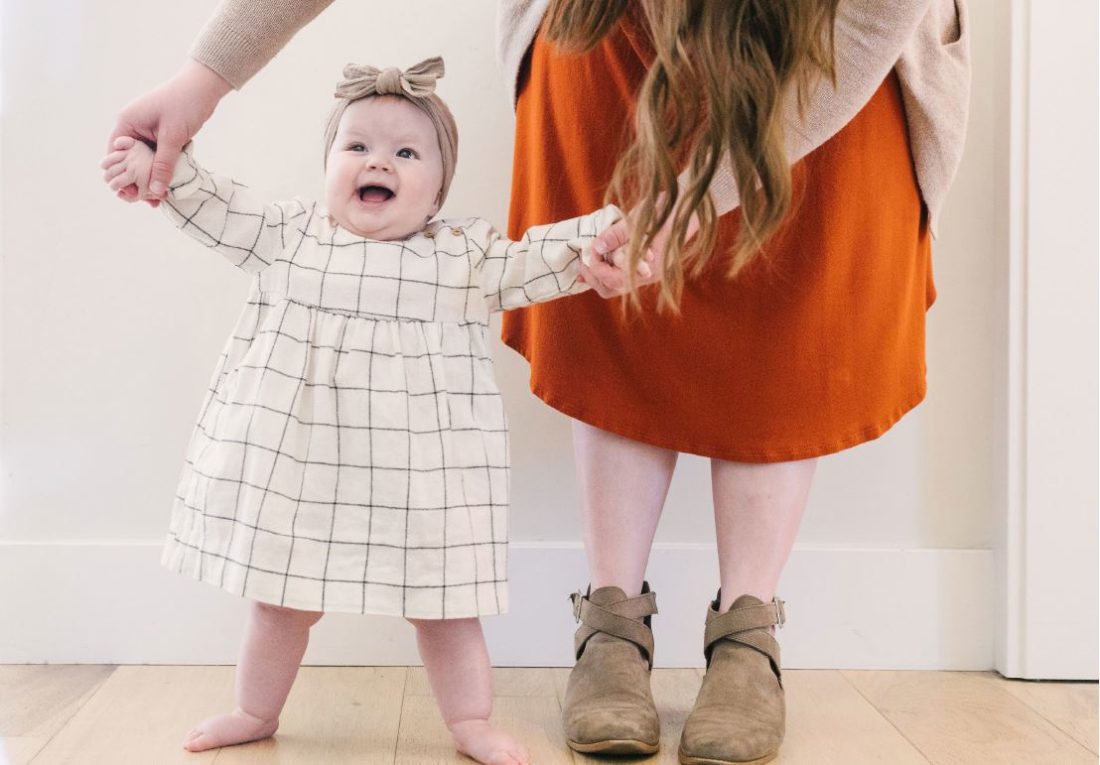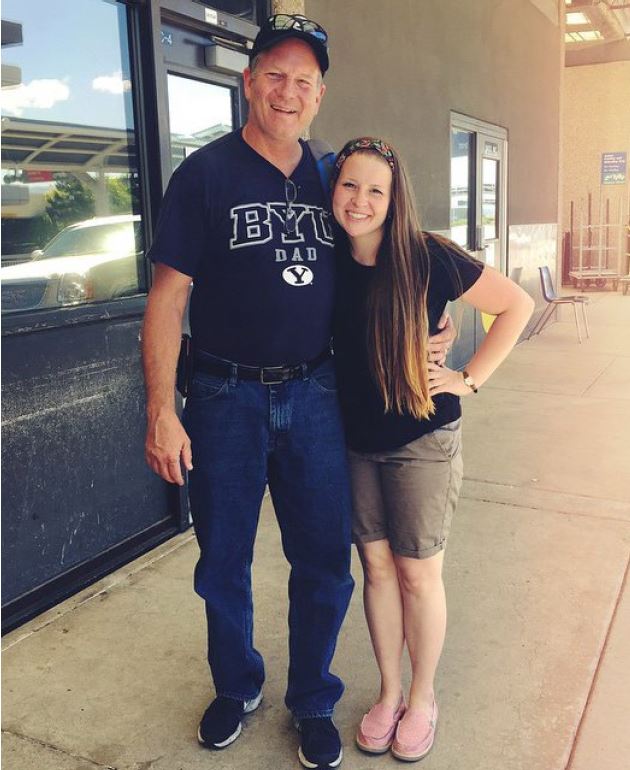As a parent to the most precious and innocent 9 month old, I consider myself a junior parent compared to parents of teens. I speak from my experiences, but also from what I have learned in watching people very close to me struggle with pornography use and how it affected their relationships.

That being said, here’s the first myth:
Myth: Parents are in charge of their teen’s recovery.
It is so hard to see someone you love struggle with pornography, especially as a parent who is responsible for the well-being of their child. You think, “How could this happen? Was this my fault? How long has this really been going on?” followed by a million other questions.
Then, the guilt sets in and you feel a whole rush of emotions.
Some of these emotions could be: fear, shame, embarrassment, acceptance, blame, heartache, anger, love, sympathy, or perhaps even empathy. Sometimes, you feel all of the above. It happens!
I know that when my then fiance, Zachary, opened up to me, I felt so many different emotions. It was like a flood of questions and emotions and then my mind went completely blank, which absolutely never happens.
However, because it did, I was able to just listen to Zachary as he poured out his heart and share something that he had struggled with most of his life. Learning something like this can be a lot to process, and that’s okay!
After he shared his story and experience with me, all I could really say was that I loved him and was grateful that he opened up to me. We were then able to talk about it more and I was able to process over time all of my emotions and all the questions that I had.
I was blessed in not letting my emotions get the best of me that night because it’s usually when we let these emotions take control that we react in a negative way, harming the other person. This is especially true in a parent/teen relationship.
A common reaction that I’ve seen with parents after learning this information is to go into “mom and dad will fix this” mode and take control of the situation.
The problem with this mindset is that parents will put their relationship with their teen in an environment that makes it difficult to work together and be accountable for their actions. The teens aren’t as accountable for their actions because the parents have taken control. Parents justify their actions because they love their teens and have the mentality of “whatever it takes.”
I’ve seen this with a really close friend of mine – a dedicated mom – who reacted by taking control and getting her son a 12 steps book, committing to take him to meetings, do the steps with him, and whatever else it took. She thought that if she just tried hard enough, she could save, or rescue, her son from this.
As a result, her son took a pretty passive approach to overcoming his struggle. He thought that if he could just replace his bad habit with a good habit like exercising, or a new activity, then he could overcome it.
Over time, when the new things and gadgets didn’t work, it became very difficult to communicate without getting frustrated. He felt frustrated at himself and at his mom for being too controlling. She was just trying her best as a mom to help her son.
Overall, it was unhealthy. They were trying to put out the flames instead of figuring out how it got started in the first place, or even what was feeding the fire. They both had good intentions, but the wrong approach.
Truth: Parents can love, support, and help their teen in recovery. Parents can’t control or save them from their struggles.
To illustrate this truth, I would like to compare it to driving a car.
When I was 15, my dad took me to the DMV to get my permit. To my surprise when I asked, he let me drive home from the DMV having never driven before that point!
However, I had studied, watched, and wanted so badly to be able to drive successfully. And my dad wanted that for me too.
So he got in the passenger seat, and reminded me about all the rules of the road and all the instructions that I had studied. I’ll never forget this drive home because I remember feeling overwhelmed with everything I needed to be doing. How could I watch my mirrors, speedometer, and make sure I was staying in my lane all at once?!

For something that seems so second nature now, it was hard and overwhelming at the time. But I got so much comfort in knowing that my dad was experienced and he was an extra eye looking out for any danger that I might’ve missed. He was cheering me on and coaching me the whole time even though I know he was grasping the handle on the ceiling and the side of his seat very tightly.
Thankfully, we made it home safely!
Parents, your teens need you to be in the passenger seat coaching and cheering them on. You can give them a safe environment that helps them feel comfortable, even though it’s scary and overwhelming.
It’s also important to note that I wanted to drive, even if I was scared. Parents can’t sit in the passenger seat and steer the wheel for their teen until they find the desire to drive themselves. Instead, parents can teach, love, support, and set an example that helps the teen see that driving or in this case, doing hard things and overcoming struggles is worth it in the end.
They’ll get there, I promise! I know how hard it is as a parent to be patient.
Parents, keep being there, inviting them to try. Imagine if my dad had let me drive home by myself. There is no way that I would’ve made it home safely without crashing or breaking the law, suffering tremendous consequences that would’ve impacted my future.
The same goes for parents who let their teen figure out their struggles on their own. Parents, your teens have never been through something like this before and they need your help and experience in overcoming hardships. They need your listening ear.
Teens, trust that your parents can help you and support because you do know what they’re talking about (whether they’ve struggled with pornography or not).
Shame hurts, but love heals.
Parents, of course you love your teen. Teens, of course you love your parents. Love and connection is exactly what will help both the parent and teen facilitate a healthy relationship.
So, let’s review.
Parents:
- You can be a safe place for your teen.
- You can provide healthy boundaries and structure to help them recover. Boundaries are so important because they help create that safe environment for both of you.
- You influence your teen, but you are not responsible for the outcomes. They are still accountable for their choices.
Teens:
- Your parents can help you! Let them. I promise that they have so much advice, love and support to give you if you choose to listen.
- No therapist, friend or support person will ever trump the power of a parent’s love and support.
- You need to take charge of your recovery. You own this! No one can do the work for you.
- You can recover from pornography use with help, love, and support. Never forget that!
Myth: If parents install filters, then their teens will be protected from pornography.
Let me first clearly state that we are not against filters. We love them!
But filters are like bug spray. We can use it and it reduces the bites, but sometimes we still get bit (especially when the mosquito finds that one spot on your arm or leg that you missed!)
Where we can go wrong here is when we rely so heavily on filters (or limiting access to technology) to take care of any kind of pornography threat or problem. We think, if they can’t get to it, then there is no problem.
Truth: Filters are necessary, but they are not foolproof.
We love filters because they are the best way to prevent unwanted exposure to pornography and still be able to use technology.
Think about all the ways that we intake media and information: books, podcasts, social media, tv, movies, advertisements, billboards, apps, the list goes on and on. If your child doesn’t have access to it, then their friend does. Unfortunately, if they want to seek it out, they will find it. Filters are not foolproof.
It is more effective to educate your teens and facilitate a relationship with open dialogue and conversation than to rely solely on filters to remove any kind of pornography threat or problem.
If they already struggle with pornography use, then use filters as a tool, and work with your teen so they learn to become more sexually healthy.
If you rely solely on filters and rules about using technology, your teen will be missing out on so much education and empowering knowledge on how to be more sexually healthy.
Myth: Parents who don’t struggle with pornography use can’t relate to their teens who do.
Now this myth really hits home for me. I have not experienced this in a parent/teen relationship, but when my husband Zachary opened up to me, part of the reason why I had a million questions is because I had zero education on the subject.
I never thought that someone as incredible as Zachary could even struggle with something like this. The only reason I even brought it up to him was because my mom strongly advised me to do it. Thank goodness I listened to her!
I have learned so much over the years, but the time that I felt like I could really relate to how Zachary feels in struggling with pornography is when I was pregnant and craving a caramel sundae from McDonalds. It had to be caramel and it had to be from McDonalds.
We were in the car driving home and I was begging Zachary (who was driving) to turn the car around because we had already passed McDonalds and I needed a caramel sundae. He did not want to turn the car around and I remember saying “You just don’t get it! You don’t understand how strong these cravings are. I literally can’t think of anything else. I need a caramel sundae!”
And he looked at me and said.. “Umm, yeah. I do. I do understand.” And then it hit me. It was like it finally clicked and I got a glimpse into what he has and still does struggle with.
TRUTH: We are all human beings and not exempt from struggle.
Just think of how many people here have ever felt anxious, suffered from depression, faced a major failure, have been disappointed when they made a mistake, the list goes on and on. None of us are exempt from struggle in our life and no matter how big or small, the way that we overcome them is through connecting with each other and loving each other.
Teens may be frustrated that they’re parents don’t understand (just like how I was frustrated that Zachary didn’t know what it felt like to experience pregnancy cravings), but that doesn’t mean that parents don’t struggle with other things!
Parents, share these experiences with your teen!
It is so powerful for a teen to realize that their parents aren’t perfect either and that they have and still do have struggles in their life. I wish that as a teenager, I would’ve asked my parents more about what they learned growing up and the experiences they had. But it’s never too late to have these conversations.
Parents, share about:
- a time when you failed at something
- a time you made a huge mistake
- a time when you were really embarrassed
- Share about someone who really influenced you as a kid
- Share about the friends you had growing up. What made them good friends? Or bad friends?
- Share about any awkward teen moments you had growing up (if you haven’t completely blocked those from your memory!)
By communicating these struggles, you help teach your child the necessary tools to overcome struggles of their own.
Myth: If I was a better parent, then my child wouldn’t be struggling with pornography.
I have a close friend of mine who blames her going back to work when her son was in kindergarten as the reason why he struggled/struggles with pornography.
She has felt so much heartbreak and guilt that her son is going through this, so she feels like she needs to go back and try to find the one event that caused this whole thing – which is crazy because it’s not at all true!
She is carrying around this guilt and blame for something that happened so long ago and that she has no power to change, even if it were true.
Truth: Blame and regret can stop us from making progress in healthy recovery.
We as parents do our best. If you want to blame someone, blame the pornography industry! You won’t get anywhere trying to blame yourself or anyone else.
Blame hurts. Love heals.
It is never too late to make changes in your parent/teen relationship. It is connection, love, understanding, and communication that will help you overcome this struggle.
This post is from a presentation at the Utah Coalition Against Pornography Conference in Salt Lake City in February 2019.









1 comment
Great article! Thanks for all you are doing at Reach10.